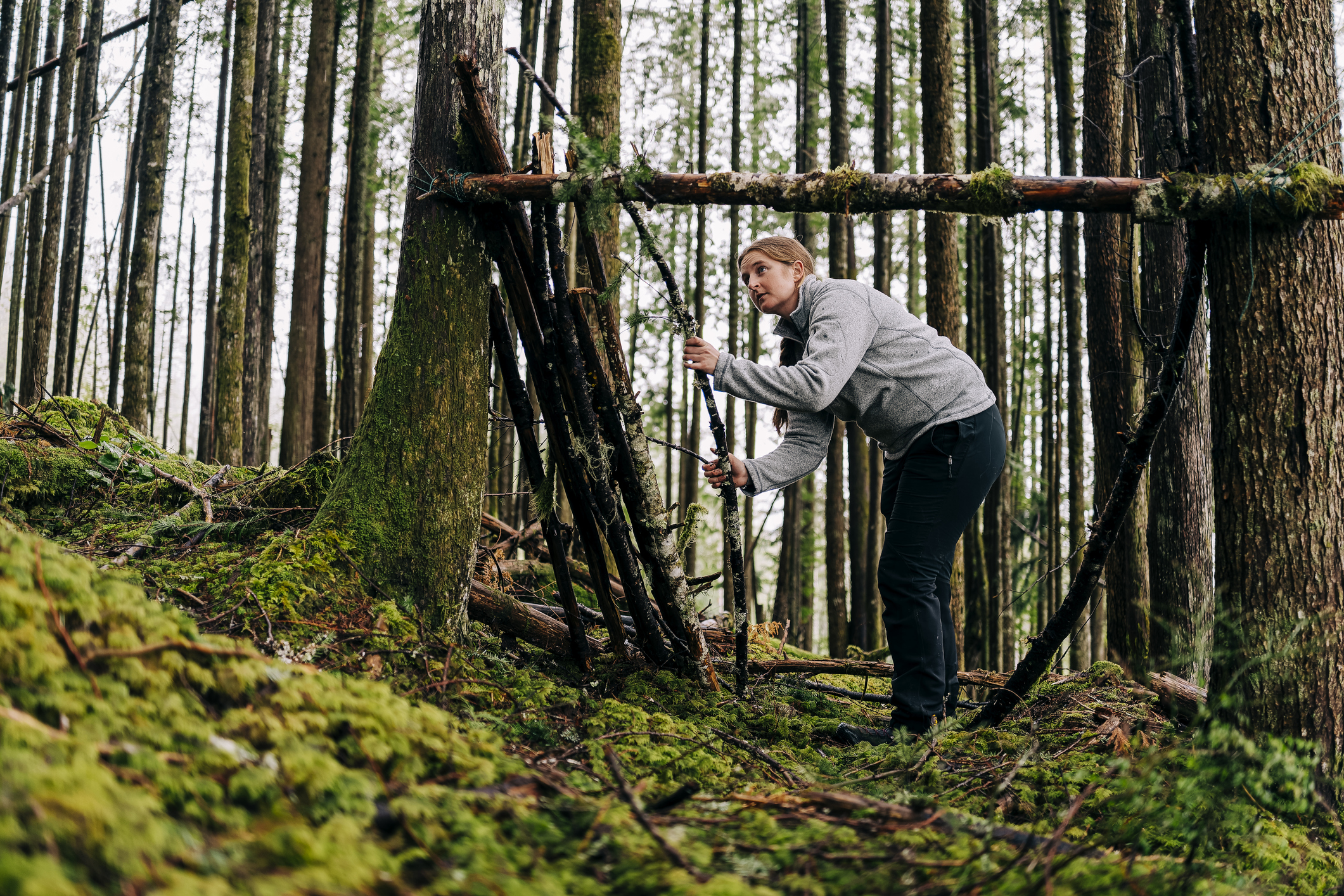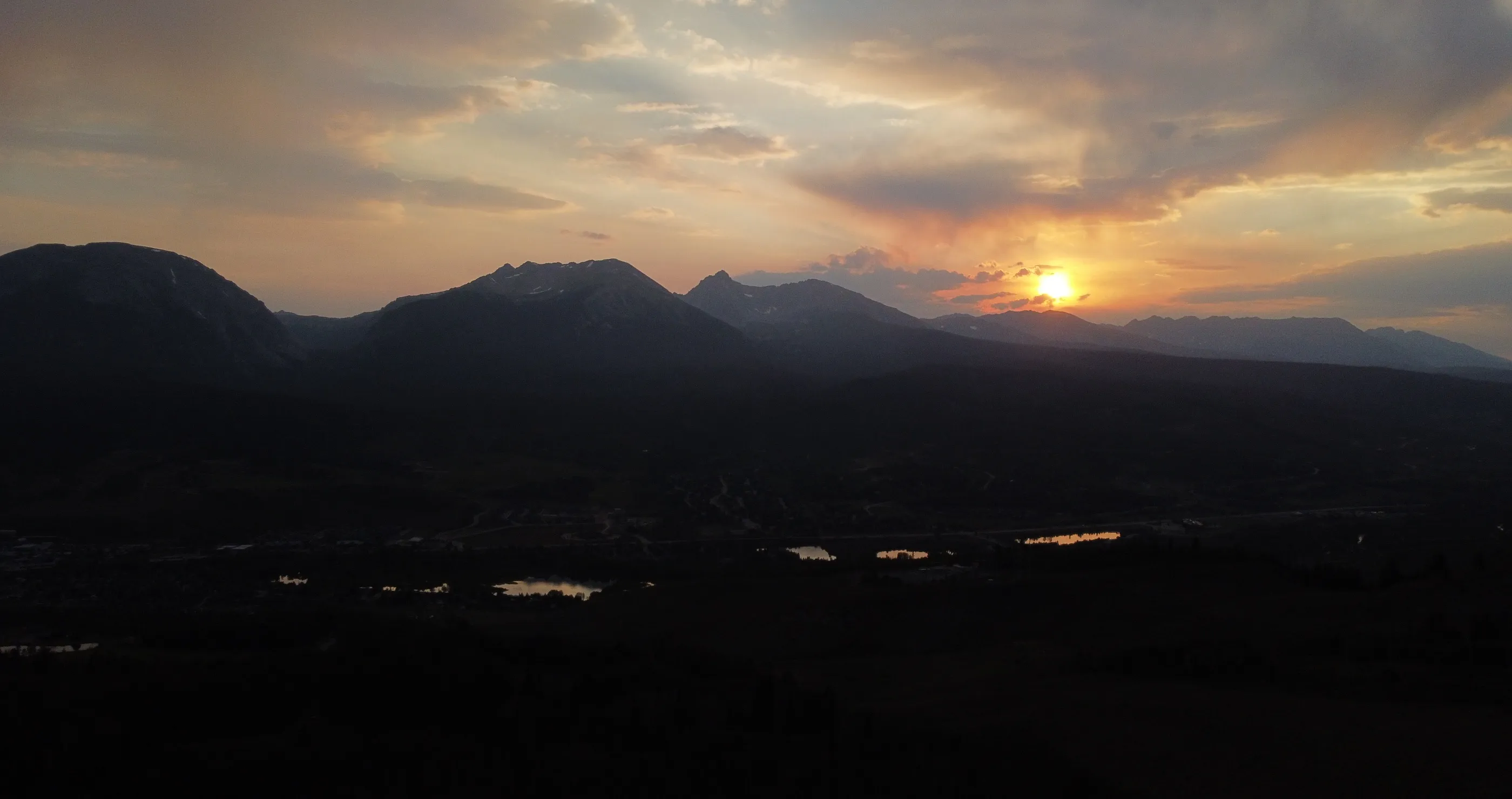

You’re coming back from an adventure in the woods, and suddenly the way back seems to be taking longer than you think it should. As you look around, nothing looks familiar as you come to the realization that you’re lost. You know you’ll have to retrace your steps or find some kind of way back to civilization, but it’s getting dark and too risky to keep moving.
Videos by Outdoors
It raises the question: How do you survive the night?
Hopefully, you’ll never have to ask that question, but it’s a great starting point if you’re in that situation. The answer starts with the survival Rule of Threes, a series of guidelines that highlights aspects of survival that you should prioritize in pretty much every type of environment. It means you can survive for:
- 3 minutes without air.
- 3 hours without shelter.
- 3 days without water.
- 3 weeks without food.
So what does this say about survival? It tells us that we need to address our needs in that order. To use an extreme example, it doesn’t make sense to go hunting for food while you’re in the process of choking to death. For the purposes of this guide, we’re going to assume that you can breathe and that you’re lost in the woods as opposed to buried in an avalanche. We’re also going to assume you weren’t fully prepared to spend the night in the woods. If you were, you would have these needs covered.
Gimme Shelter
Shelter made of branches in the clearing of a forest, in the midst of trees and vegetation. Camping, bivouac, outdoors, adventure, lost and survival concept.After breathing, the most important thing is shelter. In general, if you can build a shelter, you’ll still be alive in the morning, which means you’ll be able to worry about water and food the next day if you still haven’t been found. But you don’t just want to be alive. You also want to be warm, dry, and ready to face the hard task of getting back to civilization.
Location, Location, Location
The most important thing when choosing a location shelter is ensuring that it’s going to stay dry during the night. Steer clear of creek beds, bottoms, and other low-lying areas. Ideally, you’ll want to build your shelter on a shallow slope, with a tree at the top. The tree trunk and roots will help divert any rainwater from your shelter, keeping the ground underneath dry. You’ll also use the tree trunk as a wall for your shelter.
Build Me Up
The hardest part of building a shelter is finding a good roof beam. You’ll need a branch that’s sturdy, capable of supporting some weight, and longer than your body. It helps if it’s forked on one end, so it’s easier to brace against the tree. To test a potential contender, lean it against your tree, and see if you can lay comfortably with your head near the tree trunk and your feet near the bottom of the branch. Make sure there’s at least a full foot of clearance on all sides of your body because you’re going to need it. Once you’ve found your roof beam, brace it against your tree, and find smaller branches to lean against it from all sides. Leave an opening large enough for you to crawl through, and continually check the sizing to ensure that you’ve got a foot of clearance on all sides.
Add Insulation
To keep out the cold, you’re going to need more than just branches. You’re going to need insulation. If you’ve got a sleeping bag with you, you’ve got a head start, but even then, you’ll need some sort of water-resistant barrier between you and the elements – even better if it keeps out the wind. The good news in this unfortunate situation is that leaves make great insulation, and you’re in the woods- full of leaves.
Gather them and pile them on top of your shelter on all sides. Pack some inside, too, especially if you haven’t got a sleeping bag with you. They’ll add much-needed thickness. Continue to put leaves on the outside, the more, the better. By the time you’re done, you should have something that looks less like a shelter and more like a giant mound of leaves. You’ll also have a windproof, water-resistant shelter that’s good enough to keep you warm and dry for the night.
Do you have any tips to add for building a shelter? Let us know in the comments below.









